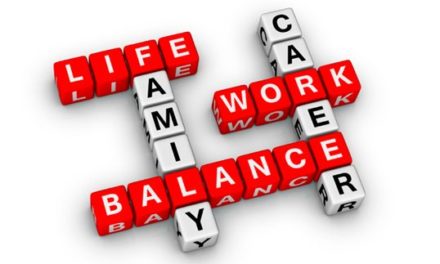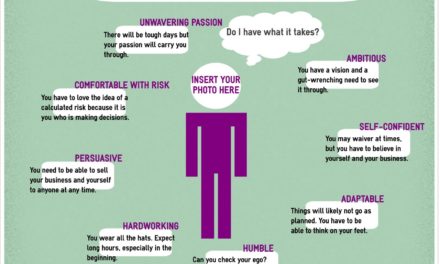Customers aren’t going to come and find you, so you have to figure out ways to let people know who you are, where to see you, and what you can do for them. And you’re responsible for all your small business’ financial decisions, so you’re going to have to know something about finance.
And, the fact that you’re your boss means you should be self-directing too. It also means you should be able to prioritize and plan well, meet deadlines and be able to work until the job is done, whether that takes fifteen minutes or eighteen hours a day.
Nobody is going to be the perfect entrepreneur. You should be willing to take an honest look at yourself.
There are lots of people out there thinking about starting a small business, and tons of great ideas, but few people go out and do it. Many people think and believe it until all of a sudden they’re fifty-something, still with that great idea, but no business.
I would think to be decisive, self-disciplined, and a self-starter have to be a couple of the top traits. If you want to own a business so you can stay in bed in the morning or only have to work forty hours a week, you ought to stick with your 9 to 5 job. The truth is, you’ll be working for more than forty hours a week for quite a while, and most often with very little money to show for it.
I think he’s probably right, so why are you waiting? Stop just thinking about it and just do it.
There won’t be anyone telling you what to do, how to do it, and when it needs to be done (except for your clients, of course, and it seems to me they often want things done now!). You’ll need to be able to make decisions, and be disciplined enough to work at it every day, no matter how discouraged you might be.
That goes without saying. You need to be excellent at it before you even think about starting your small business.
Robert Browning said, “The critical ingredient is getting off your butt and doing something. A lot of people have ideas, but few decide to do something about them now. The true entrepreneur is a doer, not a dreamer.”
Successful entrepreneurs need to deal with both well. Running a business is stressful at the best of times, and can be extremely stressful when things aren’t going well. That big client you have that you think is so loyal could only decide to go elsewhere for no reason that’s apparent to you.
Along with those technical skills we talked about earlier, most entrepreneurs have to be a jack of all trades, at least from the beginning. Assuming you already leased space and have all your tools, the first thing you might want to do is find suppliers for the parts you’ll need to put it together.
Since you probably won’t possess all those skills and you probably can’t afford to hire someone to do most of those jobs, you’re going to have to be willing to learn new things and be able to pick them up quickly. You won’t see any money for these jobs either. Are you alright with working the hours it takes to learn these skills and perform them without seeing immediate results?
Are you able to make short term sacrifice for long term gain? It might be tempting, for example, to take the first thousand dollars your companies earn and spend it on clothes or your house or your car, but is that necessarily the best thing for your small business? Or should you be leaving the money in the company and using it to build your business?
It takes the desire to succeed, courage, perseverance, and lots of will power to continue to work at it in the face of the setbacks that will inevitably come your way. What else does it take to be a successful small business owner?
Procrastination and owning a business don’t seem to go well together. You might not be suited to owning your own business if you’re the type of person who tends to put off until tomorrow.
© Wordscapes® (David Turner). All Rights Reserved.




